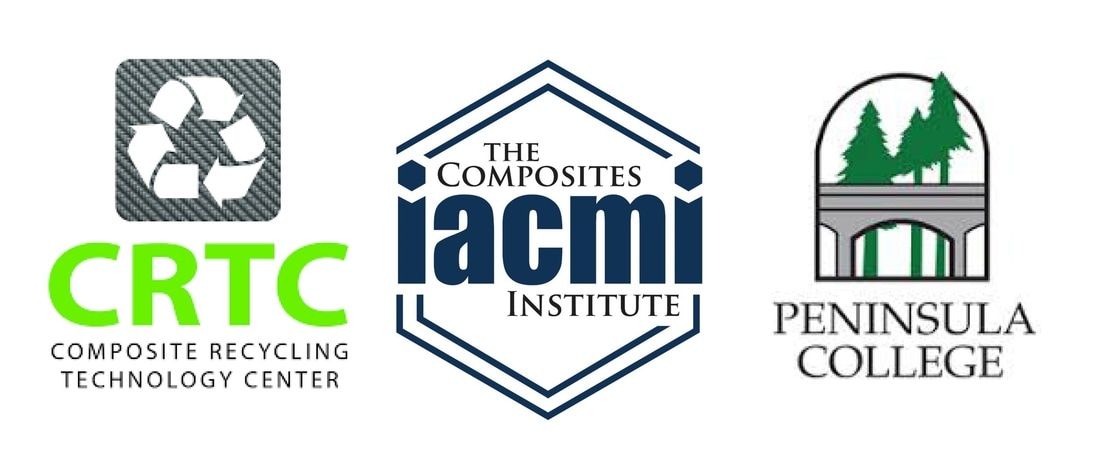|
Cantwell: National Collaborative Agreement Will Make Port Angeles a Leader in Carbon Fiber Recycling
Carbon Fiber Recycling in Port Angeles Will Create Jobs, Grow Economy Washington, D.C. – Today, Ranking Member of the U.S. Senate Committee on Energy and Natural Resources Maria Cantwell (D-Wash.) joined officials from the U.S. Department of Energy (DOE) and the Port Angeles region to create a new partnership on carbon fiber recycling. The agreement establishes the Composite Recycling Technology Center (CRTC) as a strategic partner and as a West Coast satellite location for DOE’s Institute for Advanced Composites Manufacturing Innovation (IACMI), which is based at Oak Ridge National Laboratory in Tennessee. The signed memorandum of understanding will foster the partnership between the CRTC and the IACMI, allowing them to share research and development facilities, as well as opportunities for funding and workforce training in the field of carbon fiber recycling. The agreement also allows Peninsula College to expand their capacity to train the composites manufacturing workforce of tomorrow. “Port of Port Angeles is taking the lead for the nation in solving carbon fiber recycling for manufacturing,” said Sen. Cantwell. “This agreement gives the Composite Recycling Technology Center real world-class chops in solving how to break down carbon fiber, which will lead to jobs.” The global composites market is expected to reach more than $27 billion by 2016. It is a critical focus of economic development in the United States because it creates high-paying jobs and many other economic benefits, such as fuel savings and reduced emissions. “The Pacific Northwest is primed to be a key center for composite materials and advanced manufacturing," said Mark Johnson, director of the Advanced Manufacturing Office at DOE. “The new partnership between the CRTC and the Composites Institute will link these great innovators to a national network driving technology innovation, workforce development and manufacturing advancements for the future.” The CRTC is the world’s first facility to develop carbon fiber composite scrap materials into useful, innovative products that can be used in the automotive, energy and recreational industries. Recycling carbon fiber composites saves scrap materials destined for landfills, which can reduce waste and provide significant energy savings during the manufacturing process. Recycled carbon fiber composites use only one-tenth of the energy compared to manufacturing new carbon fiber composites. “Innovative products made from recycled carbon fiber provide this region with opportunities for transforming our economy, attracting and training the best and brightest, and leading the nation in sustainable composites manufacturing," said CRTC CEO Robert Larsen. “We are pleased to partner with The Composites Institute, a like-minded organization committed to innovation and a green industry future. Our collaboration with Peninsula College will provide the critical workforce needed for success." “This collaboration reinforces our mission to accelerate the development and adoption of cutting-edge technologies for low-cost, energy-efficient manufacturing of advanced composites, positively impacting clean energy innovation and workforce development," said IACMI CEO Craig Blue. “We’re excited to be participating in the development of the CRTC as a key educational partner," said President of Peninsula College Luke Robins. “Partnerships such as the CRTC create great synergy between public and private entities, provide outstanding learning opportunities for our students and can be dynamic catalysts for economic development for our region. We look forward with great anticipation as the CRTC develops and matures." The state of Washington has 96 composite manufacturers. It is estimated that 2 million pounds of carbon fiber scrap waste are sent to Washington’s landfills each year. If the state's carbon fiber scrap waste can be recycled, it could have a potential market value of $50 million. “We currently have many components manufactured overseas, but with the possibility of a more affordable raw material available here in Washington State, we see a significant potential for us to improve our business operations here in Sequim, by allowing us to manufacture some of these parts locally and affordably," said Batson Enterprises CEO Bill Batson. Last year, Sen. Cantwell introduced the Carbon Fiber Recycling Act (S. 1432), which would direct DOE to conduct a study on the technology and energy savings potential of the manufacturing and use of recycled carbon fiber, and also authorizes $10 million for DOE to create sector public-private partnerships to develop a carbon fiber recycling demonstration project. This legislation was included in the Energy Policy and Modernization Act (S. 2012) that passed the Senate on a bipartisan vote of 85-12 in April 2016. At a committee hearing, Sen. Cantwell invited Port Angeles Port Commissioner Colleen McAleer, who testified that “recycling composite carbon fiber scrap will not only provide essential jobs on our local economy, but promote a needed market that provides environmental benefits as well. Our port sees the CRTC as a win-win on all of these levels." During the same hearing, Sen. Cantwell also secured the DOE’s commitment to collaborate with CRTC on future research and development projects. Today’s signing of a memorandum of agreement is the culmination of Sen. Cantwell’s request and subsequent negotiations among DOE, IACMI and CRTC. In July 2015, the Port of Port Angeles was awarded a $2 million grant from the U.S. Department of Commerce to retrofit their facility to house CRTC, which is expected to bring 200 new jobs to Port Angeles. # # # http://www.energy.senate.gov/public/index.cfm/democratic-news?ID=D7131298-E124-4D22-948D-F6259BEA0859
1 Comment
3/22/2020 10:38:15 pm
This is a great idea.. recycling anything possible is always a great idea.
Reply
Leave a Reply. |


 RSS Feed
RSS Feed